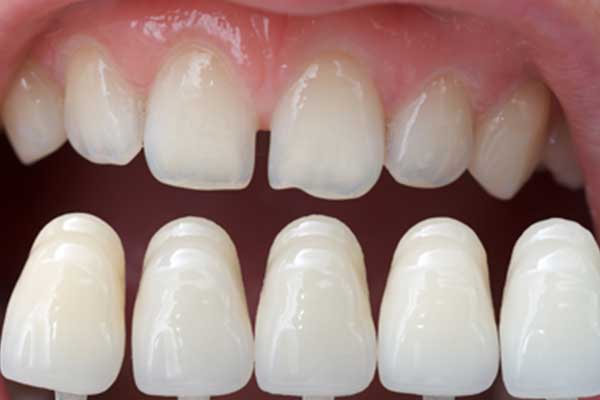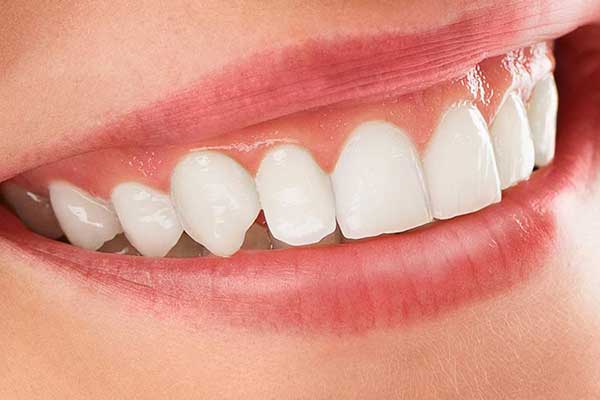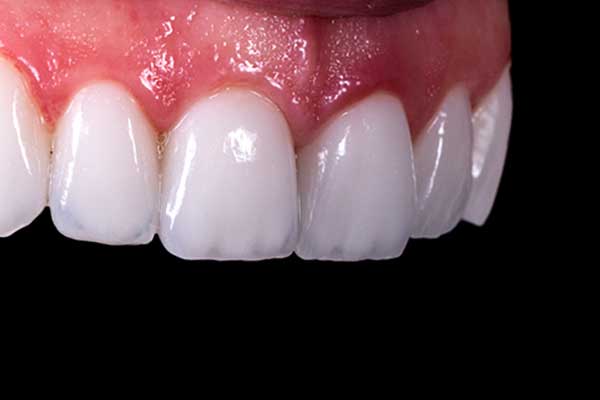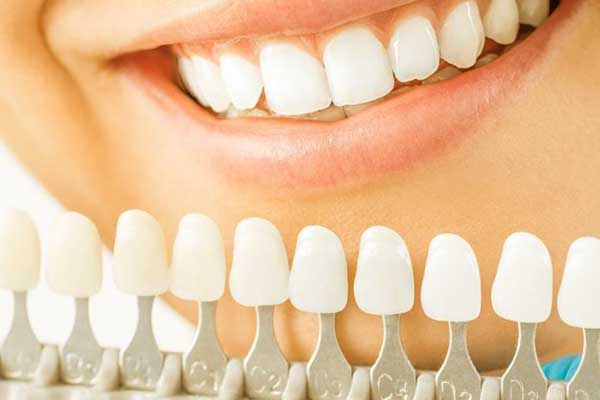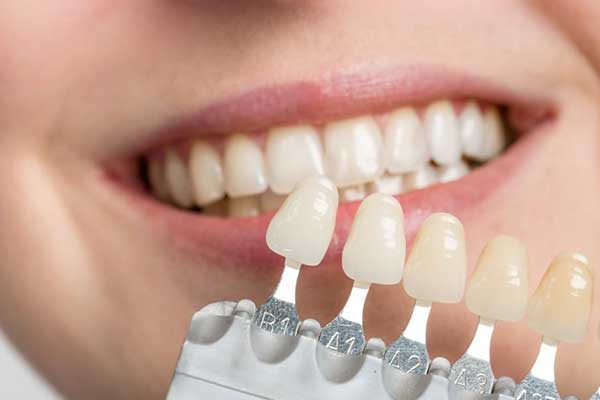Veneer for Teeth Whitening: A Radiant Smile Made Easy
1. Introduction veneer for teeth whitening
A dazzling smile can significantly enhance one’s confidence and leave a lasting impression. Many individuals desire whiter teeth but struggle with discoloration or imperfections that are resistant to traditional teeth whitening methods. This is where veneers come to the rescue. Veneers are an excellent solution for achieving a radiant, flawless smile.
In this article, we will delve into the world of veneers for teeth whitening, exploring their benefits, the process of getting them, maintenance, costs, and more.
2. What Are Veneers?
Veneers are thin, custom-made shells typically crafted from porcelain or composite resin. They are designed to cover the front surface of teeth, concealing imperfections and enhancing their appearance. Veneers offer a versatile solution for a range of dental concerns, including tooth discoloration, chips, cracks, gaps, and even misalignment.
3. The Benefits of Veneers for Teeth Whitening
3.1 Enhances Aesthetics
Veneers can dramatically improve the appearance of teeth, providing a natural-looking, white smile. They can effectively mask intrinsic stains, discoloration due to aging, or enamel damage caused by certain medications.
3.2 Customizable and Natural
Veneers are customized to suit each individual’s unique dental structure and desired outcome. They are carefully crafted to match the color, shape, and size of the surrounding teeth, ensuring a seamless blend with the natural dentition.
3.3 Long-lasting Results
Compared to traditional teeth whitening methods that may require frequent touch-ups, veneers offer a long-lasting solution. With proper care, veneers can retain their beauty and functionality for many years.
3.4 Instant Transformation
Veneers provide an immediate transformation, allowing individuals to achieve a stunning smile in a relatively short time. This is especially beneficial for those with upcoming special events or occasions.
4. The Process of Getting Veneers
The journey to a picture-perfect smile with veneers involves several steps, as outlined below:
4.1 Consultation and Examination
During the initial consultation, a dentist will assess the oral health and discuss the desired outcome with the patient. They will evaluate factors such as tooth color, shape, size, and overall dental health to determine if veneers are the right choice.
4.2 Treatment Planning
Once the decision to proceed with veneers is made, the dentist will develop a treatment plan tailored to the patient’s needs. This plan outlines the number of veneers required, the expected timeline, and any necessary preparations.
4.3 Tooth Preparation
To ensure a proper fit, a small amount of enamel is removed from the tooth surface. This is typically minimal and performed under local anesthesia, ensuring the patient’s comfort.
4.4 Impression and Temporary Veneers
An impression of the teeth is taken to create custom veneers that perfectly fit the patient’s mouth. In the meantime, temporary veneers may be placed to protect the teeth and maintain aesthetics.
4.5 Veneer Placement
Once the permanent veneers are ready, the dentist will carefully bond them to the teeth using a dental adhesive. Any necessary adjustments will be made to ensure a precise fit and a natural bite.
5. Are Veneers Suitable for Everyone?
While veneers offer exceptional results for many individuals, they may not be suitable for everyone. Factors such as oral health, tooth structure, and personal preferences play a role in determining eligibility. A thorough examination and consultation with a qualified dentist will help determine if veneers are the right choice.
6. Veneer Maintenance and Care
Maintaining veneers is relatively straightforward and requires consistent oral hygiene practices. It is essential to:
- Brush teeth twice a day with a non-abrasive toothpaste.
- Floss daily to remove plaque and food particles.
- Avoid biting or chewing on hard objects, such as ice or pens.
- Schedule regular dental check-ups and cleanings.
7. How Long Do Veneers Last?
Veneers are designed to be durable and long-lasting. With proper care and maintenance, they can endure for an extended period, often ranging from 10 to 15 years. However, individual factors such as oral hygiene practices, lifestyle habits, and tooth grinding may affect their lifespan.
8. Common Misconceptions about Veneers
8.1 Veneers Look Fake
One common misconception is that veneers have an unnatural appearance. However, advancements in dental technology and materials have made it possible to create veneers that closely resemble natural teeth, ensuring a seamless integration.
8.2 Veneers Are Only for Aesthetics
While veneers are primarily known for their cosmetic benefits, they can also provide functional improvements. Veneers can help address minor tooth misalignments or irregularities, providing a more harmonious bite.
9. Veneers vs. Other Teeth Whitening Methods
9.1 Veneers vs. Teeth Whitening Kits
Unlike over-the-counter teeth whitening kits, veneers offer a permanent solution to discoloration and dental imperfections. While teeth whitening kits may provide temporary results, veneers provide a long-lasting transformation.
9.2 Veneers vs. Teeth Whitening Procedures
Professional teeth whitening procedures performed by dentists can effectively lighten tooth color. However, if discoloration is severe or intrinsic, veneers may be a more suitable option for achieving the desired shade and concealing other imperfections.
10. The Cost of Veneers
The cost of veneers can vary depending on several factors, including the number of veneers required, the material used, the dentist’s expertise, and the location. On average, the cost per tooth can range from $800 to $2,500. It is crucial to consult with a dentist to receive an accurate estimate based on individual needs.
11. The Role of a Dentist in Veneer Placement
The expertise and skill of a qualified dentist are vital in the successful placement of veneers. Dentists evaluate oral health, design customized treatment plans, prepare the teeth, and ensure accurate veneer placement. Their guidance and expertise contribute to achieving optimal results and long-term satisfaction.
12. Potential Risks and Side Effects
While veneers are considered safe and have minimal risks, some potential side effects may include:
- Tooth sensitivity: Some individuals may experience temporary tooth sensitivity to hot or cold temperatures after veneer placement.
- Irreversible process: The removal of enamel is irreversible, and therefore, veneers are a permanent solution.
- Maintenance requirements: Veneers may require periodic replacements or repairs, depending on individual circumstances.
13. Transform Your Smile with Veneers
Veneers offer a transformative solution for achieving a stunning smile. Whether it’s addressing discoloration, chips, cracks, or gaps, veneers can help individuals regain their confidence and enjoy a radiant, flawless smile. Consult with a qualified dentist to explore the possibilities and embark on your journey to a picture-perfect smile.
14. Conclusion veneer for teeth whitening
Veneers provide a remarkable opportunity to enhance the appearance of teeth and achieve a radiant smile. With their customizable nature, long-lasting results, and natural aesthetics, veneers have become a popular choice for individuals seeking teeth whitening and smile transformation. Consultation with a dentist is crucial to determine the suitability of veneers and to receive personalized treatment for optimal results.
15. Frequently Asked Questions (veneer for teeth whitening)
Q1: Are veneers painful to get? A1: The process of getting veneers is typically painless. Local anesthesia is used during the tooth preparation stage to ensure comfort.
Q2: Can veneers be whitened? A2: Veneers are resistant to traditional teeth whitening methods. It is essential to discuss desired tooth shade with the dentist before the veneer placement.
Q3: Can veneers stain over time? A3: Veneers are highly stain-resistant; however, it is still important to maintain good oral hygiene practices and avoid excessive consumption of staining substances like coffee or tobacco.
Q4: Can veneers be replaced if damaged? A4: In the event of damage or wear over time, veneers can be replaced. Consult with a dentist for an evaluation and proper guidance.
Q5: Are veneers reversible? A5: Veneers require the removal of a small amount of enamel, making the process irreversible. It is essential to consider this aspect before proceeding with veneers.

